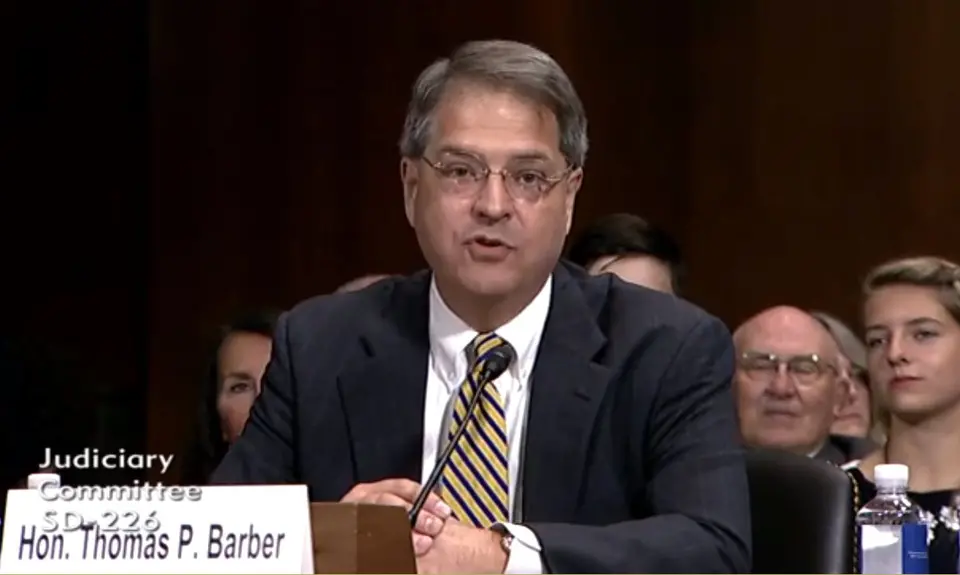On May 7, 2018, President Trump nominated Thomas Barber to be a federal judge in the Middle District of Florida. The Senate Judiciary Committee held Barber's hearing on October 17, 2018 and reported him to the full Senate on February 7, 2019. Floor votes are expected beginning June 11. People For the American Way wrote to the Senate to express our opposition to the Barber nomination. You can download our letter here.
Dear Senator:
On behalf of our 1.5 million supporters nationwide, People For the American Way opposes the nomination of Thomas Barber to be a federal judge in the Middle District of Florida. In his testimony before the Senate Judiciary Committee, he did not express agreement with Brown v. Board of Education, a core belief that is indispensable to a lifetime position on the federal bench.
May 17, 1954 ranks among the most important days in the history of the United States: When the Supreme Court issued its unanimous decision in Brown v. Board of Education 65 years ago, the essential humanity of African Americans was finally recognized as fundamental to the fabric of our society. The legal overturning of “separate but equal” gave legitimacy to a federal judiciary that had previously sanctioned the political, social, and economic oppression of people based on their race.
The backlash was intense and violent—and unmistakably overt. But fair-minded constitutionalists on the Supreme Court and throughout the federal judiciary brought the principles of the case to life, often at great personal risk. Over time, a national consensus finally emerged that Brown was correctly decided. In a nation still rife with racial divisions and conflict, everyone could at least agree on that.
Nominees for the court that issued Brown have long expressed their agreement with the decision without generating headlines.i But since President Trump took office, judicial nominees’ support for Brown has gone the way of so many other democratic norms. Refusal to acknowledge the correctness of the case has become commonplace.ii
The excuse for many is that judicial ethics prohibit them from suggesting how they might rule in a particular case that might come before them. But do these nominees really believe it likely—or even possible—that the principle of Brown is going to be re-litigated? Revisiting separate but equal has not been a subject of any serious debate, at least in public.
Judicial nominees should be committed to the principles Brown v. Board of Education represents and to a judiciary that reliably applies those principles. Senators should have the same commitment: That means taking seriously judicial nominees’ refusal to acknowledge that Brown was correctly decided.
Sincerely,
Marge Baker
Executive Vice President for Policy and Program
